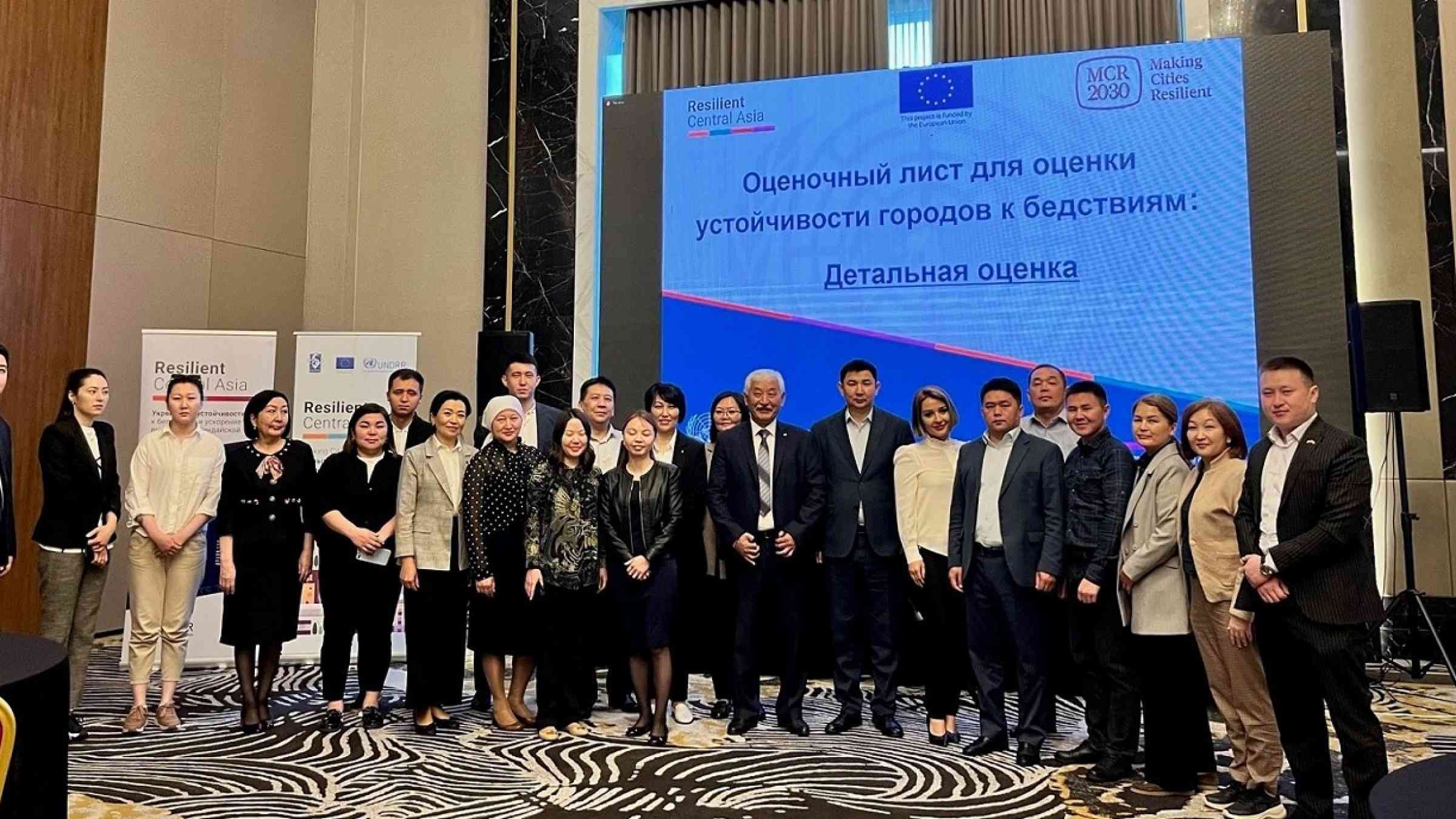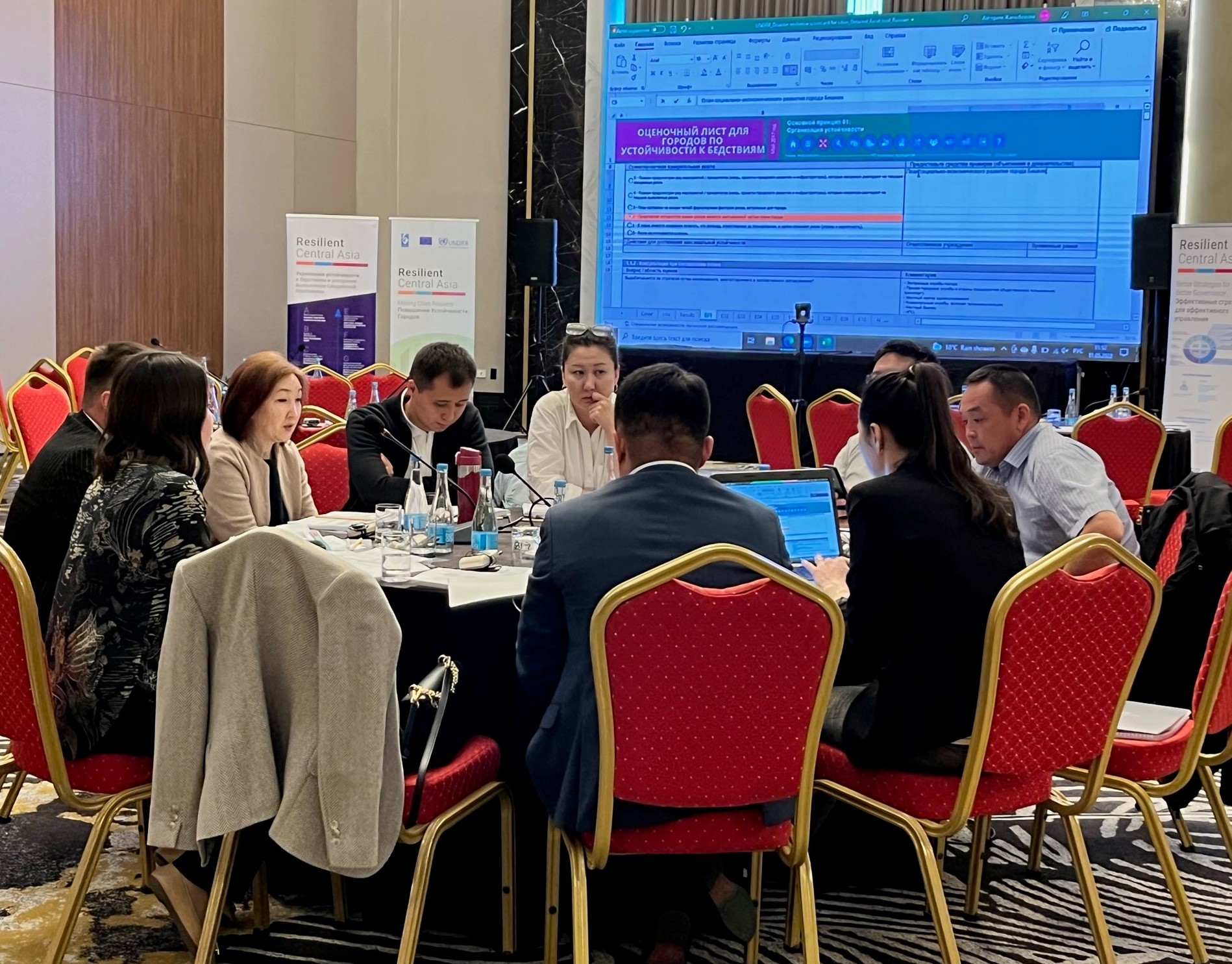European-Union-funded project supports Bishkek’s detailed disaster resilience assessment

Bishkek, 13 May – With financial support from the European Union (EU), and facilitation of the United Nations Office for Disaster Risk Reduction (UNDRR), the city of Bishkek launched its Detailed Disaster Resilience Scorecard Assessment process, which forms a part of the city’s wider Local Disaster Resilience Strategy development process.
During the three-day workshop, a Technical Working Group (TWG) consisting of representatives from local and national governments, as well as risk analysis and early warning institutions, discussed the 117 indicators of the Detailed Disaster Resilience Scorecard - a tool to help local governments to self-assess resilience-building gaps and develop recommendations for strengthening their disaster resilience. The multi-stakeholder and inclusive nature of the workshop involved civil society organizations (CSOs) that also co-facilitated discussions.
The Detailed Disaster Resilience Scorecard Assessment is the third step in a series of disaster resilience scorecard assessment workshops. Prior workshops in September 2021 provided a preliminary assessment of the city’s resilience to disasters and, in close cooperation with the World Health Organization, assessed the public health sector’s resilience. As the next step, interviews and wider consultations with experts, CSOs, the UN as well as other development partners will be held to support the preparation of the disaster resilience report for Bishkek, providing the baseline and foundation for the development of the local resilience strategy.
In addition, the participants received information about the INFORM Subnational Risk Index for Bishkek, which builds the picture of risk by looking at over 60 indicators across three dimensions of risk: hazard and exposure, vulnerability, and lack of coping capacity. Bishkek has improved its position in the risk class since 2017, due to its reduced risk in the lack of coping capacity dimension of the Index, moving it from the high risk to the medium-risk class.

Background information
The EU-funded project “Strengthening disaster resilience and accelerating the implementation of Sendai Framework for Disaster Risk Reduction in Central Asia”, implemented by the United Nations Office for Disaster Risk Reduction (UNDRR), supports countries of the region in implementing the Sendai Framework priorities. The project supports strengthening regional coordination, development of regional DRR strategy, national disaster loss accounting systems, and community-level disaster risk reduction. On the local level, the project supports the development of disaster resilience strategies of capital cities. For this project, the EU committed EUR 3,750,000 for the three-year implementation.
Making Cities Resilient 2030 (MCR2030) is a unique global cross-stakeholder initiative improving local resilience by making cities safer, preventing risks, and promoting innovation and investments. Building on the Making Cities Resilient Campaign which began in 2010, MCR2030 welcomes cities, local governments as well as any other parties wishing to help cities prosper through advocacy, knowledge-sharing and city-to-city networks.
For additional information please contact
Delegation of the European Union to Kazakhstan, at: delegation-kazakhstan-pic@eeas.europa.eu,
Mr. Abdurahim Muhidov, UNDRR Regional Programme Coordinator, at: muhidov@un.org